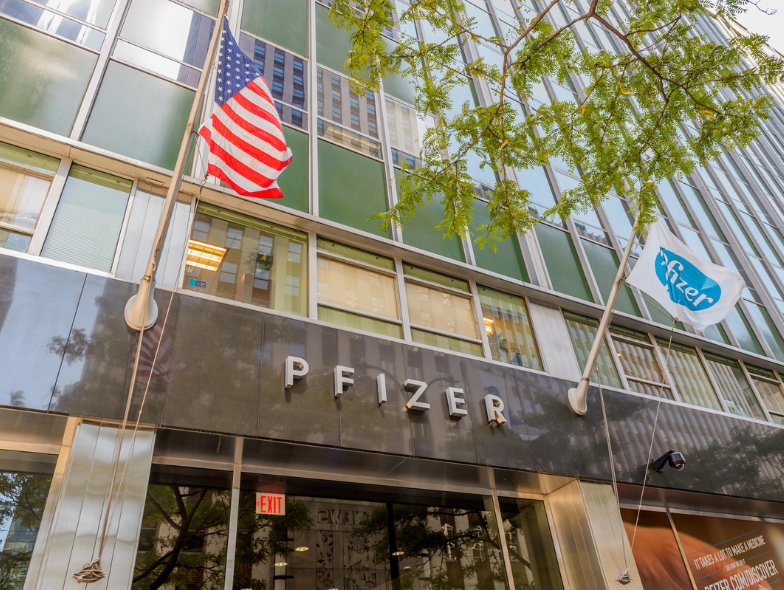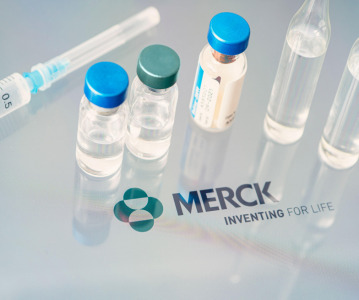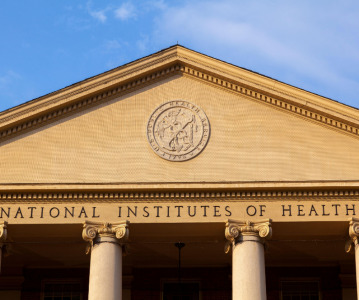Pfizer acquires Seagen to become the leading innovator in cancer therapy

Pfizer makes a bold move in the acquisition of innovative cancer therapy biotechnology company Seagen, the move means the doubling of their pipeline of early-stage therapeutics and gaining four leading ADC therapies.
In a deal worth $43 billion, Pfizer has acquired global biotechnology company Seagen. Seagen is dedicated to discovering and developing revolutionary therapies for cancer.
Through the merger with Pfizer, both Boards of Directors are enthusiastic about the combined ability to improve the lives of patients.
“Pfizer is deploying its financial resources to advance the battle against cancer, a leading cause of death worldwide with a significant impact on public health,” stated Albert Bourla, Pfizer Chairman and Chief Executive Officer. “Together, Pfizer and Seagen seek to accelerate the next generation of cancer breakthroughs and bring new solutions to patients by combining the power of Seagen’s antibody-drug conjugate (ADC) technology with the scale and strength of Pfizer’s capabilities and expertise. Oncology continues to be the largest growth driver in global medicine, and this acquisition will enhance Pfizer’s position in this important space and contribute meaningfully to the achievement of Pfizer’s near- and long-term financial goals.”
Seagen is expected to show a 12% year-on-year growth in 2023, which equates to $2.2 billion in revenue from it’s four flagship medicines, and other royalties. Subject to regulatory approval Seagen’s new medicine candidates are also expected to show good growth, with Pfizer anticipating revenue reaching $10 billion in 2030 and a strong growth outlook from then on.
Seagen is a leader in the development of antibody-drug conjugates (ADCs) in cancer treatment, with four FDA-approved medicines, out of a total of 12 ADCs available on the market. Seagen employs two main novel technologies to develop transformative cancer therapeutics. ADCs use antibodies to target specific cancer cells, and deliver small molecule drugs directly to the tumour site. This improves the efficacy of the drug whilst minimising side effects for patients. The ADC portfolio from Seagen, developed over the last 25 years, includes Adcetris® (brentuximab vedotin), Padcev® (enfortumab vedotin), Tivdak® (tisotumab vedotin), and Tukysa® (tucatinib). They have new medicines in the pipeline as well as upcoming testing on their existing ADCs for new indications, setting them up in a good position for the next few years.
Their other technologies, including sugar-engineering antibody technology, ensures a broad pipeline ahead of the merger with the capability to hopefully treat large patient populations on a global scale. Through the acquisition the companies are hoping Pfizer’s expertise in protein engineering and medicinal chemistry will compliment Seagen’s ADC technology to contrive novel targets and biologics, and drive drug development.
Seagen are working on a number of other avenues for innovation in their technology capabilities, including in Investigational New Drug Applications and antibody platforms such as bi-specific antibodies that work cohesively with the immune system to target tumours.
“Pfizer shares our steadfast commitment to patients, and this combination is a testament to the passion, dedication, and talent of the Seagen team to achieve our mission to discover, develop, and commercialise transformative cancer medicines that make a meaningful difference in people’s lives,” explained David Epstein, CEO at Seagen. “The proposed combination with Pfizer is the right next step for Seagen to further its strategy, and this compelling transaction will deliver significant and immediate value to our stockholders and provide new opportunities for our colleagues as part of a larger science-driven, patient-centric, global company.”
Currently, Pfizer has an impressive cancer medicine portfolio, with 24 approved therapies, including the best-selling medicines for metastatic breast cancer and prostate cancer. In clinical development stages they have 33 programmes, a figure that would double once the merger with Seagen is complete.
“Over the past decade we’ve taken bold new approaches to translating scientific research into effective medicines for people living with cancer, and we have pioneered several breakthroughs in breast cancer, genitourinary cancer, haematological malignancies, and precision medicine,” said Chris Boshoff, Chief Development Officer Oncology and Rare Disease, Pfizer. “The addition of Seagen’s world-leading ADC technology will position us at the forefront of innovative cancer care, and strongly complements our existing portfolio across both solid tumours and hematologic malignancies. We believe the combination of our teams, and respective areas of strength and global footprints will allow us to realise Seagen’s potential and advance even more potential breakthroughs to patients with cancer.”
Subject to closing conditions and the approval of stakeholders, the two pharma giants expect the acquisition to be completed by early 2024.
Related News
-
News Merck invests US$1 billion in new USA-based vaccine facility
Merck annouces the opening of a new state-of-the-art vaccine production plant in Durham, North Carolina, USA, in efforts to bring pharmaceutical product development onto home soil in face of new import tariffs. -
News US FDA adds haemodialysis bloodlines to devices shortage list
On March 14, 2025, the US FDA published an open letter to healthcare providers citing continuing supply disruptions of haemodialysis bloodlines, an essential component of dialysis machines. -
News Women in Pharma: Manufacturing personal and team success
Our monthly Women in Pharma series highlights the influential lives and works of impactful women working across the pharmaceutical industry, and how the industry can work towards making the healthcare industry and workplace more equitable and inclusive... -
News The next 15 drugs up for negotiation with Medicare include several blockbusters
By now, everyone is quite familiar with the drug price negotiations taking place between drug companies and the Centres for Medicare & Medicaid Services (CMS) in the USA as part of measures being taken to reduce the cost of drugs for patients, to make ... -
News Pfizer may shift production back to US under Trump pharma tariffs
At the 45th TD Cowen annual healthcare conference in Boston, USA, Pfizer CEO Albert Bourla outlined the potential for Pfizer to shift its overseas drug manufacturing back to the US as pharmaceutical industry players weigh their options against Presiden... -
News Experimental drug for managing aortic valve stenosis shows promise
The new small molecule drug ataciguat is garnering attention for its potential to manage aortic valve stenosis, which may prevent the need for surgery and significantly improve patient experience. -
News Trump's federal funding shift could stifle biotech innovation
Over a month into the second term of Donald Trump’s presidency and we have already seen some big changes affecting the healthcare industry. -
News Sanofi receives FDA warning over contamination at manufacturing site
The FDA issues a warning letter to Sanofi over contamination violations found at the Framingham biologics facility, in Boston, MA, USA.
Recently Visited
Position your company at the heart of the global Pharma industry with a CPHI Online membership
-
Your products and solutions visible to thousands of visitors within the largest Pharma marketplace
-
Generate high-quality, engaged leads for your business, all year round
-
Promote your business as the industry’s thought-leader by hosting your reports, brochures and videos within your profile
-
Your company’s profile boosted at all participating CPHI events
-
An easy-to-use platform with a detailed dashboard showing your leads and performance







